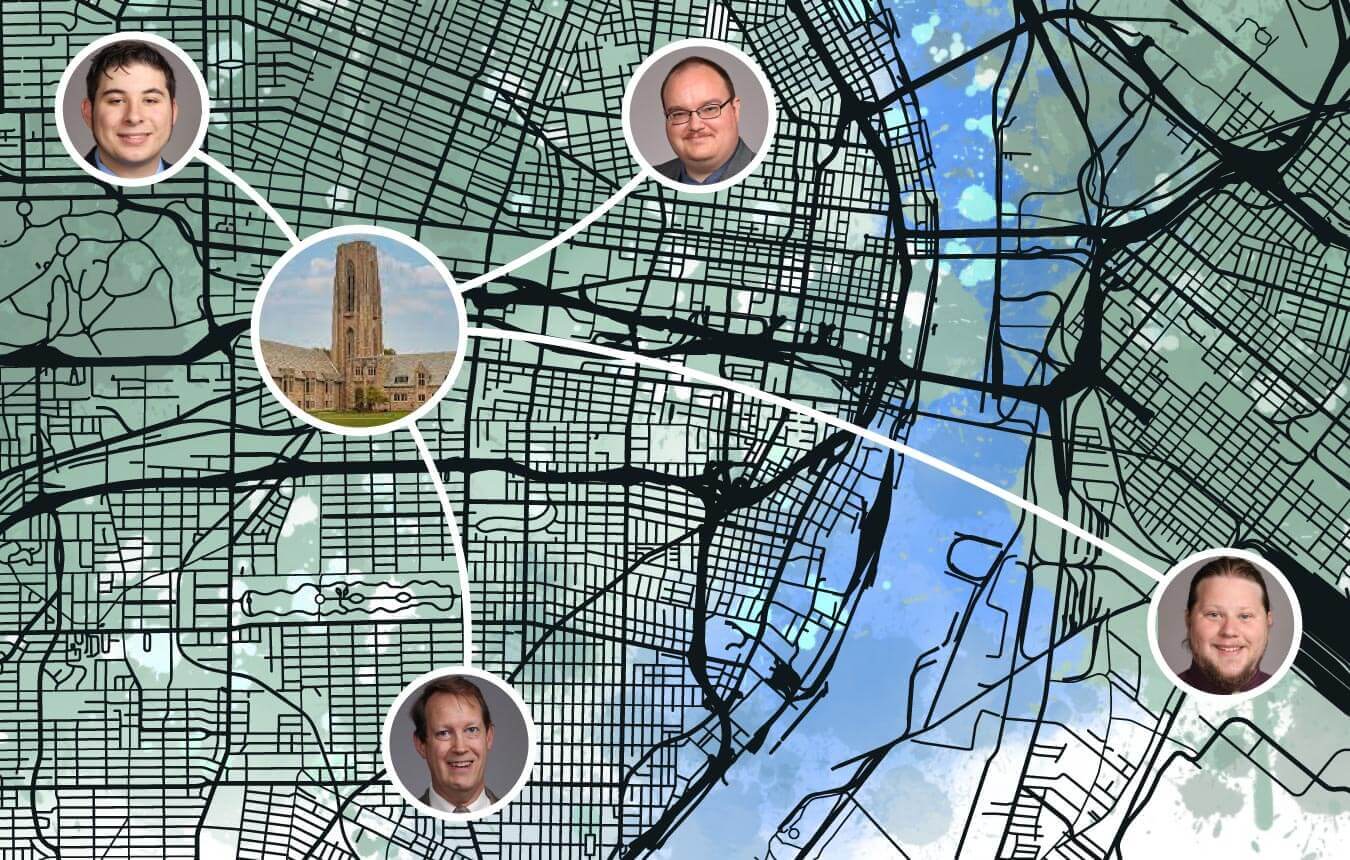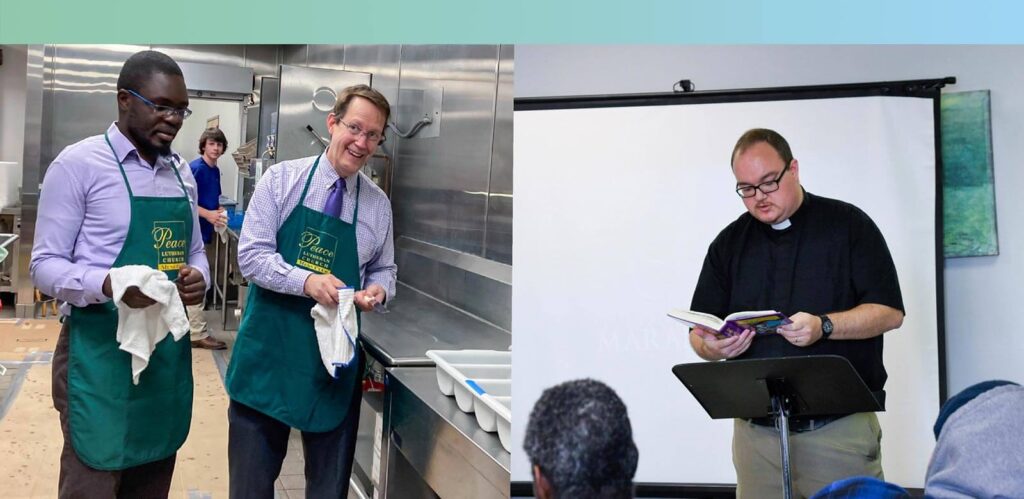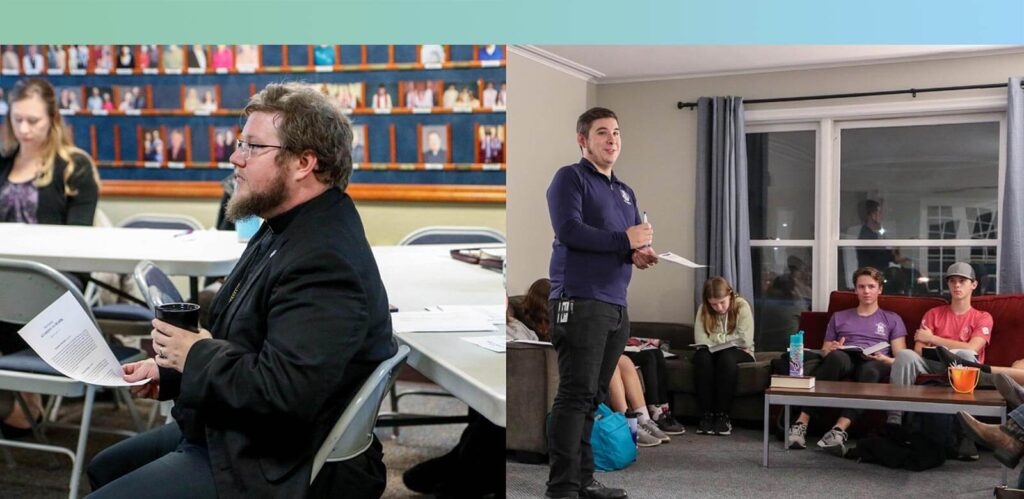
Concordia Seminary Newsroom
Field Education: Offering Hands-on Ministry Experience

by Jacob Moore
Concordia Seminary is located in the city of Clayton, which sits in the heart of St. Louis County, Mo. From campus, students can travel in any direction and get a unique cultural experience — be it urban, suburban, rural, big city or small town.
Just west of campus is a suburban conglomerate of towns such as Ladue, Kirkwood and Des Peres. Heading east leads directly to downtown St. Louis and the historical districts of the Central West End and Soulard. To the north, many of the area’s historical urban neighborhoods can be found. Just a little further past the Mississippi River is the rural area of southern Illinois with the towns of Hamel, Red Bud and Worden.

Because of its unique location in the St. Louis metropolitan area, Concordia Seminary is able to take advantage of its widely varied communities through the Resident Field Education (RFE) Program. Through this program, residential ministerial formation students are sent out to receive hands-on ministry training and experience. The program deploys Master of Divinity (M.Div.), Residential Alternate Route (RAR) and Deaconess Studies students across the St. Louis area to serve in LCMS congregations, ministries and nonprofit organizations.
There are 84 congregations in the greater bi-state area from four LCMS districts: the Missouri District, the Southern Illinois District, the English District and the SELC District. “I am extremely thankful to all these congregations and pastors who welcome and embrace the students of Concordia Seminary,” said RFE Director Rev. Bill Wilson. “They provide our students with a place where they can grow and be exposed to what life in the church is all about.”
The program gets students out into the community. “Seminarians spend a lot of time reading, researching and contemplating theological topics and issues,” he said. “The classroom is the part of their Seminary education where students are challenged on an intellectual level about the Scriptures and Lutheran doctrine. Our field education program takes what the students are learning in the classroom and gives them a chance to use it hands-on in congregations where they are assigned.” The program focuses on three main objectives: helping students grow in their knowledge, skills and attitudes.”

The development of pastoral and diaconal skills is another important part of the RFE Program. M.Div. and RAR students are expected to develop their skills in preaching, teaching and pastoral care, and deaconess students in their witnessing, teaching and diaconal care. Through their field work experiences, students have the opportunity to understand the dynamics of Word and Sacrament ministry in the context of worship, and to serve those who are homebound or in need of counseling or encouragement.
“It’s so wonderful to see how students grow as individuals from their field work experiences,” said Emi Cella, RFE administrative assistant. “The RFE Program helps students recognize their weaknesses so that they may grow and learn from them and, at the same time, embrace their strengths without being arrogant or prideful.”
Fourth-year seminarian Jonathan Lackey’s RFE assignment is at Village Lutheran Church in Ladue. “RFE at Village has been an absolutely amazing experience,” Lackey said. “Experiencing liturgical worship at such a close-knit congregation has been a blessing, one that I am thankful to God for every day. The teaching and service opportunities there are plentiful. Right now, I am blessed to lead the high schoolers in a study of the Epistles of St. John, and it’s the highlight of my week!”

The RFE Program not only assigns students to local congregations but also exposes them to cross-cultural and institutional ministry. These specific learning modules help students see the importance of engaging with their wider community and learn how they can better serve the community. Cross-cultural and institutional field education is designed for first-year students and is divided between the fall and spring semesters.
The cross-cultural and institutional experiences exemplify the Seminary’s 2022-23 academic theme well: “Sharing the Gospel—Sharing Our Lives.” Students engage in ministry with and among people of different cultures as the church being a people of all nations comes into focus. At a professional level, students participating in cross-cultural field education identify specific cultural patterns and structures that are part of their assignments and better understand how they can shape and influence ministry. But on a personal level, students are encouraged to establish relationships with people of other races and ethnicities and with those who may speak other languages. “Learning how to react in new situations with confidence and Christian integrity is important for our students to learn before they leave the Seminary and enter full-time vocational ministry,” Wilson said.
Some experiences offered to students within the cross-cultural module include a weekly sign language class and assignments with Christian Friends of New Americans, where students assist people who are new to this country with after-school tutoring, fellowship groups and Bible study classes.

In addition to cross-cultural field education work, students also participate in institutional settings such as in nursing homes, assisted living homes, retirement homes, hospitals, hospice care, prisons and jails. Students, with supervision, work with patients, clients, inmates and residents in real-life situations. Students are challenged to engage with others at their relational, intellectual and spiritual levels. Some places where students serve include Lindenwood Area Senior Ministries, Southwestern Illinois Correctional Center and St. Mary’s Hospital.
Second-year M.Div. student Davin Alberson serves at the Young in Spirit Adult Day Center located near Forest Park, which is just minutes from the Seminary. Young in Spirit provides meals and rehabilitation for adults who have genetic disorders such as Down Syndrome.
“By working with people at Young in Spirit I am learning how important it is to meet people where they are in life. I believe the love and care that I bring to this work will help me as a pastor,” he said. “One of the best things about it is seeing the joy and excitement from the young adults when I am teaching and ministering to them.”
New to the field education program this year is the ability students have to create their own modules. If students are interested in a specific area like chaplaincy, technology or music, they can work hand-in-hand with the RFE office to create a module tailored for them. Through this tailored approach students can discover what they are passionate about and combine it with ministry.
In the Gospel of Matthew, Jesus told His followers to go and make disciples of all nations by baptizing them and teaching them everything He commanded. “One of the goals of our ministerial formation process is for our students to put what they have learned in the classroom into action not only in their churches but in the broader community,” Wilson said. “Students may have the head knowledge, but the field education program enables them to put this knowledge into practice for the benefit of them and those they serve. This is why the RFE Program is a vital part of the formation of our future pastors and deaconesses. It pushes our students out into the communities of the world that desperately need to hear the Gospel of Jesus Christ.”
Jacob Moore is a fourth-year Master of Divinity student at Concordia Seminary, St. Louis.